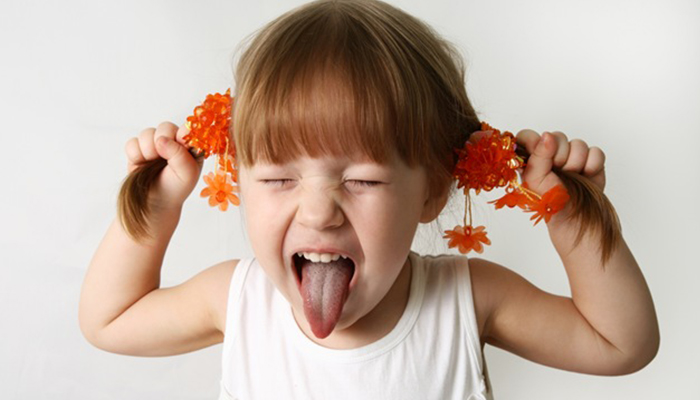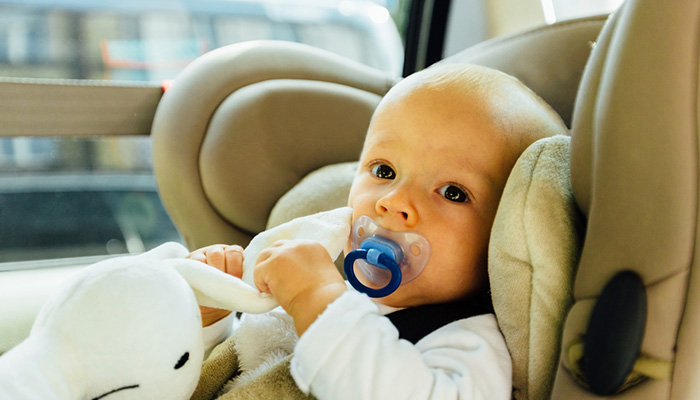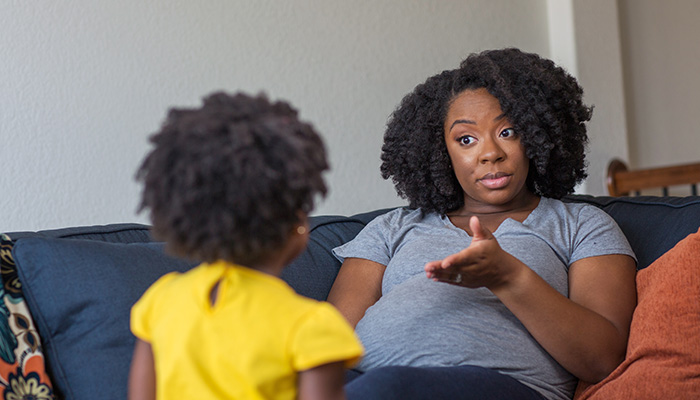Does it feel like your child is stuck in a pattern of seeking negative attention? Biting, hitting, screaming, throwing food and crying at your leg when you just want to enjoy a sip of coffee? My husband and I are in the thick of parenting our sweet but strong willed 2.5 year old. He is constantly pushing the boundaries and testing his new found independence. When he is upset, he often throws his toys or food which is not only dangerous but messy! I have been doing a lot of reading lately to figure out the best way to remain calm and help him through these strong emotions and I came across a wonderful author, Janet Lansbury, who has written countless articles and 2 books (No Bad Kids and Elevating Child Care) and also has a wonderful podcast called “Unruffled” that I have started listening to religiously. She studied under the work of Magda Gerber, whose passion was educating parents about their children and how to interact with them respectively. What I have learned from this author is that the Social-Emotional development of children is so important and that we need to validate their feelings while respectively teaching them the boundaries or values that we want to teach them. For example, you organized a playdate with some girlfriends who have kids about the same age as your toddler. Sounds fun right? In theory…until all the 2 year olds are fighting over toys and biting each other. Did you know that kids aren’t “ready” for a playdate until they are 4-5 years or older? We can’t expect our children to know how to share their toys at this age and so parallel play is more appropriate then actually “playing together”. These play dates are for us more than the children which is great! I encourage everyone to get out of the house and interact socially but we need to lower our expectations and if we are going to have a play date we need to be present and ready to react when our children hit or bite. Here is an example of what you can say/do to help your child.
- Your child is fighting over a toy with another child. Respond in the moment and act like a CEO. Calm and cool. Set firm limits and physically block the behavior with your hand or body and use a matter-of-fact phrase such as “I won’t let you hurt your friend. If you hit again, I will take this toy away.” You must react immediately for this to be beneficial otherwise wait for the next opportunity. And follow through with the consequences and boundaries you have set. No empty threats.
- Tend to the child who was hurt but don’t force an apology from your child. Model good behavior and if the child really is hurt, you can apologize for your child and ask them how you can help make them feel better. Our children are always watching.
- Speak in first person – don’t use “Mommy doesn’t like it when you do that etc.” Instead use “I statements” and keep it positive. “I know you are frustrated but it is not ok to hit our friends”.
- Contrary to popular belief, time outs really aren’t effective and actually give children more attention for their negative behavior. It is better to observe, act swiftly, remain calm and give quick statements/play by plays of what is going on to help them through the behaviors.
- Never spank your child – this only validates hitting and causes more aggressive behavior.
- Let your child know that your love is unconditional. When they are calmed down, let them know you are ready to give them a hug when they are ready. And if they have feelings to share, they will and you are available to listen.
- Remember to praise good behavior when you see it. And the only cure for a 2 year old is a 3 year old etc. Each age comes with new phases and progressions but we need to be present to respectfully parent our children.
I have listed more great phrases to use with your children. If you ever need help with your child’s behavior, do not hesitate to schedule an appointment with your provider to discuss in more detail. We are here to help you through the ups and downs of parenting.
“Observe more, do less. Do less, enjoy more.” – Magda Gerber
Resources:
1. www.JanetLansbury.com
2. No Bad Kids, Toddler discipline without shame. By Janet Lansbury
3. Unruffled Pod Cast by Janet Lansbury
4. https://www.magdagerber.org/



